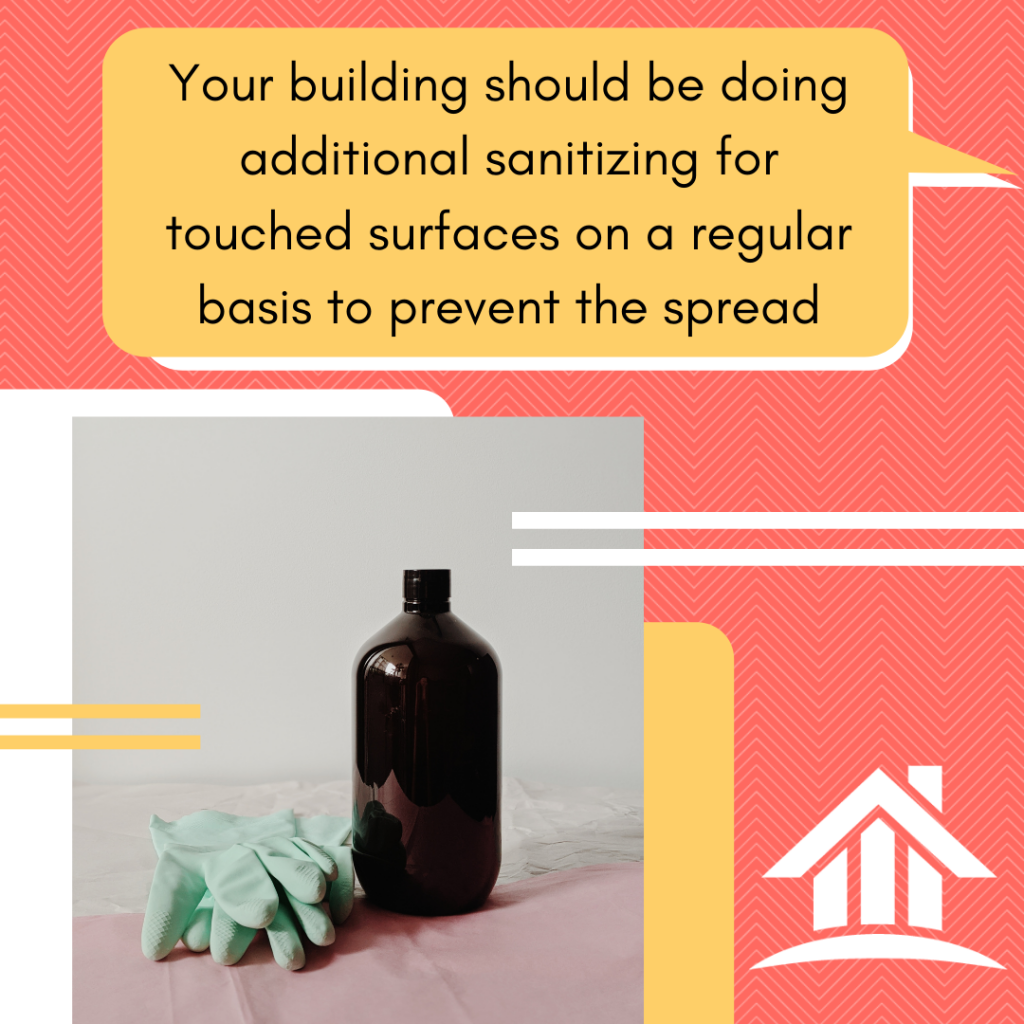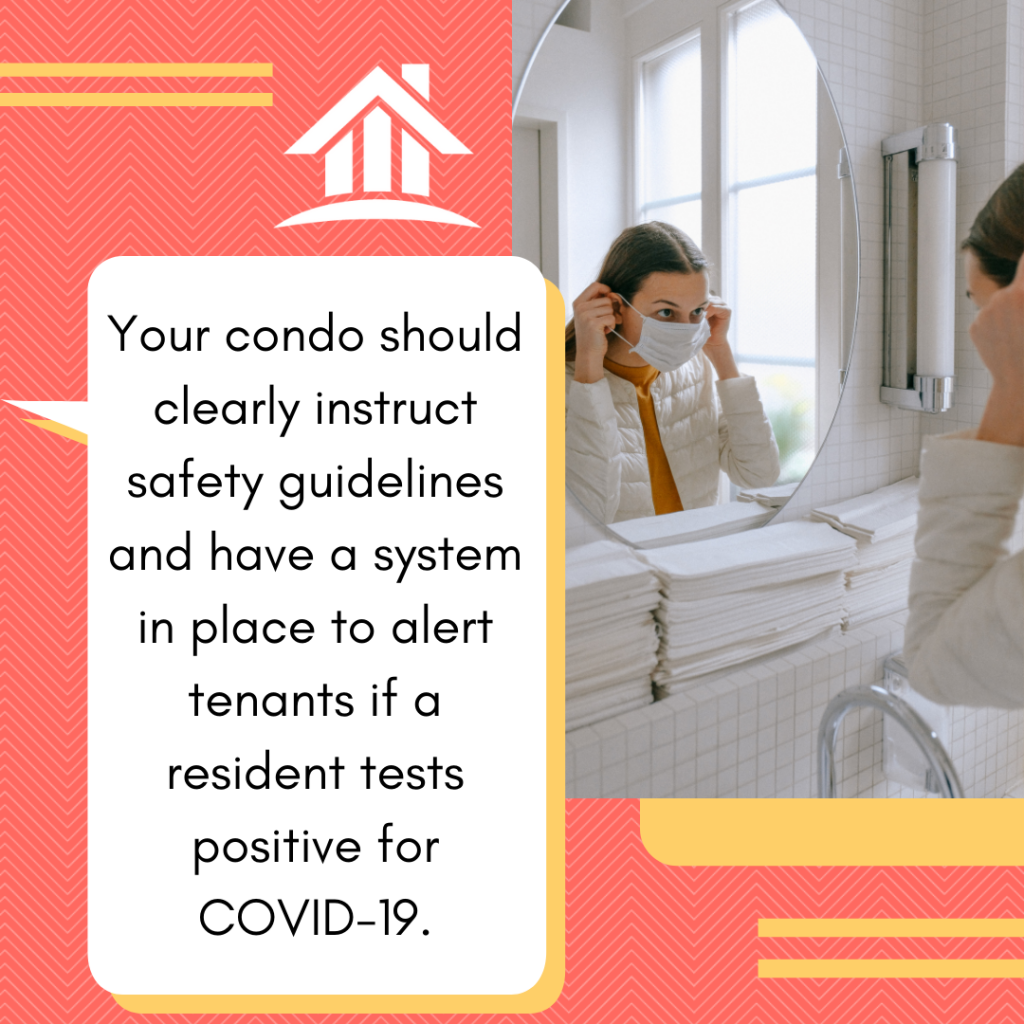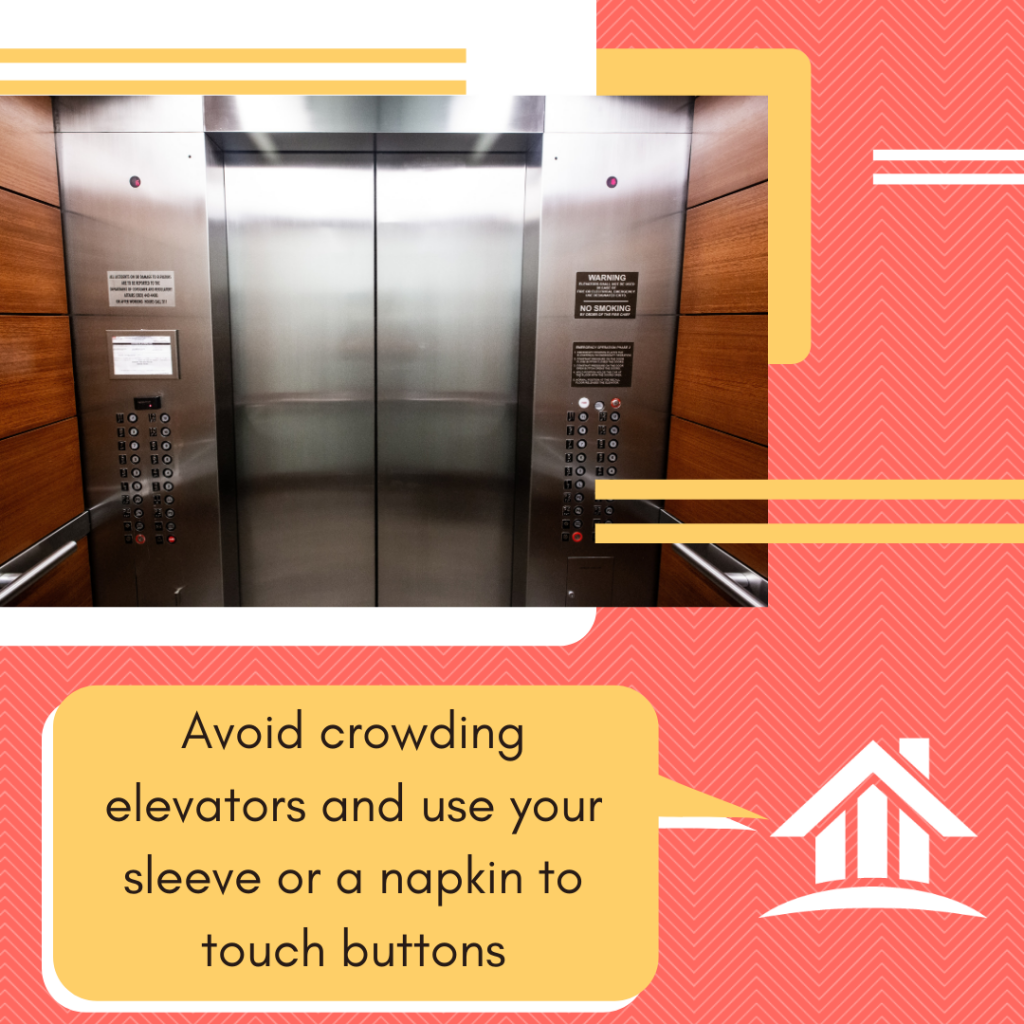Limiting the number of people you interact with can help prevent you from catching and spreading Coronavirus. But limiting interactions is difficult if you live in a condominium building that houses hundreds, if not thousands, of people. Every day, other tenants will go through the same elevators and hallways as you. Any one of these areas can have the COVID-19 virus lurking and ready to spread to a new host.
Keeping safe from Coronavirus is difficult for the over 1.9 million Canadians living in condos. One condo building in Calgary has seen the worst of this, as they reported 32 cases of Coronavirus in June. In this article, we provide tips on how to minimize your chances of contracting COVID-19 if you live in a condo building. We explain what condominiums are doing, or should be doing, to prevent a full-building infection and review what you can do as a tenant to avoid being infected.
What Condominiums Are or Should Be Doing
Your condominium building has a responsibility to prevent the building from a COVID-19 outbreak. Most condo corporations have done their part through additional cleanings, closing off certain areas, and communicating reminders and information to tenants.
Additional Cleaning and Sanitation
Like restaurants, malls, busses, and more, condo buildings must sanitize regularly used areas more often to prevent a Coronavirus outbreak. This is especially true for objects such as door handles, stairwell railings, elevator buttons, and more. Additionally, the cleaning supplies that your building uses should no longer depend on scent and cost, but its ability to kill bacteria.
It’s also essential that your building provides its residents with easy access to sanitation, such as hand sanitizer. We may lose track of what we touch and end up with germs on our hands. But if your building has hand sanitizer stations at key areas, it’s a reminder to sanitize our hands.

Closing Off and Restricting Common Areas
Condo residents spend a lot on their condo fees. These fees usually go to amenities such as the pool, gym, and concierge. Although there’s a particular entitlement to these amenities because of condo fees, your condo should stop access to pools, gyms, and other non-essential facilities. These areas are prime for COVID-19 spread. As infection rates slow down, your building may reopen these amenities, but they should do so carefully. One common trend with gyms reopening is for members to book time slots so that the space is not overcrowded. Each time slot should also have space in between for sanitation. Condo buildings should look to do the same with building amenities.
Although the management office was once a place to socialize with your building’s staff or ask questions and file complaints, your condo should restrict access to these areas. You and other tenants can still ask questions or file complaints via phone or email, where the risk of Coronavirus transmission is nil.
Communication with Tenants
Your condo building should communicate with its tenants on multiple fronts. First, although we’ve been told again and again to wash our hands, social distance, and wear masks, it won’t hurt for signs in your condo building to do it again. Everyone forgets, and a reminder is better than a case of COVID-19. If your building isn’t already doing this, it’s an easy suggestion for your condo management.
Your building should also inform everyone about the initiatives they’re taking to prevent the spread of Coronavirus and if there are any possible cases in the building. This information should be available through emails, if your building has your email, or through signs in the elevators or main areas. It’s imperative to know if someone in your building may have COVID-19 so that you can self-isolate.

Personal Safety Precautions
You’re ultimately responsible for yourself in avoiding COVID-19. While going through your building, whether it’s to leave or to come home, it’s important to sanitize your hand and wear a mask. Elevator etiquette has changed in the COVID-19 era, and it’s important to understand what new etiquette entails.
Personal Sanitation and Wearing a Mask
Standard COVID-19 measures should apply in your condo building, even if it’s your “home”. This means you should avoid touching anything and everything. To open a door or press a button, carry a napkin so you don’t have to touch the object. Your shirt sleeve or elbow will work too – as long as you’re using something that doesn’t make contact with your face. Furthermore, though, ideally, your condo building has hand sanitizer stations around key areas, it’s always better to carry your own bottle.
When you’re in the lobby or a common area of the condo building, make sure to wear a mask. Some cities are even taking steps to mandate mask-wearing in condo buildings. Your mask shouldn’t come off until you’re in the comfort of your condo unit.
Elevator Etiquette
Elevators have been a key concern in the COVID-19 era. Elevators don’t allow for social distancing due to being confined in a small box with multiple people. Others may have also contaminated the area by touching buttons or holding onto railings.
Again, it’s important to avoid touching buttons with your hands. Your hands may touch your face or rub your eyes, which can allow the virus into your body. If you see a crowded elevator that won’t allow for social distancing, it’s better to take the next one or the stairs

Although you’re used to your whole condo building being your home, be cautious during this time. Learn about your condo building’s initiatives to protect its residents by emailing or calling management. For yourself, assume that everything outside of your condo unit is infected with Coronavirus so that you’ll take the necessary precautions.


